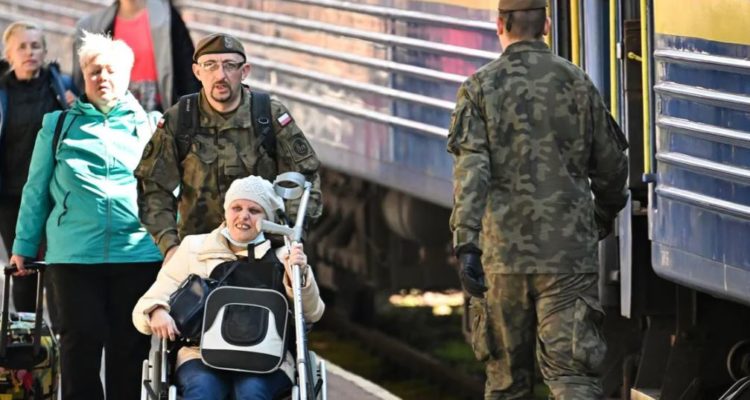The Jews of Odesa are fleeing again, as they did from the Russians in the 19th-century pogroms and the Nazis in the 20th century. However, this time, many are looking to Germany as sanctuary.
“I told my 98-year-old grandmother to go and tell my grandfather about it next time she visits his grave,” said Abraham Wolff, rabbi of Odesa’s Chabad Jewish community. His grandfather was born in Nuremberg and fled the Nazis in the 1930s. Last month the grandson took 170 women and 120 children, including the residents of Odesa Jewish children’s home, to Berlin for safety. There they were welcomed, with tears in his eyes, by President Frank-Walter Steinmeier. “My grandmother said she would not tell my grandfather, as he would not believe it,” Wolff said.
It is an irony lost on none that the Russian invasion, whose goal Vladimir Putin declared to be “de-Nazification”, is leading to yet another flight of its Jewish population, once the beating heart of cities such as Odesa, on the Black Sea. At least half its Jewish population is thought to have left as Russian warships began to bombard the city.
On Friday night, those that remained celebrated Passover. The meal’s common closing words, “Next year in Jerusalem”, are becoming ever more true.
Roman Shvartsman’s granddaughter has already moved to Israel with her two daughters. In his 86 years, he has witnessed the community’s decline, beginning in the Holocaust, when Odesa’s pre-war population of 200,000 was reduced by 80 per cent.
Read the article by Richard Spencer in The Australian.

